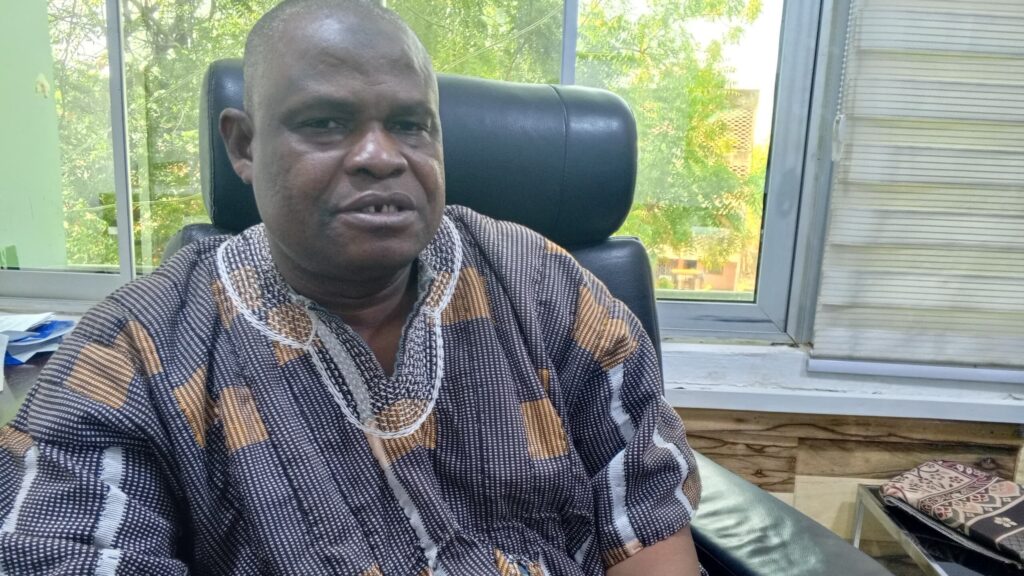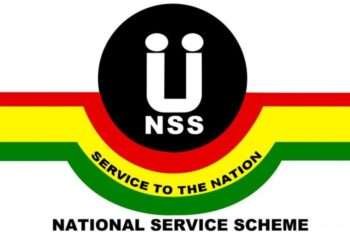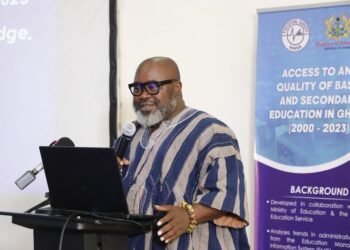As part of the nationwide observance of Blood Pressure Month, celebrated every May, Ghana aims to screen the blood pressure of one million individuals across the country.
This initiative is aimed at raising awareness and educating residents about the risks of high blood pressure, the importance of knowing one’s blood pressure status, and its potential impact on long-term health.
In line with this national target, the Upper East Regional Health Directorate has committed to screening over 42,000 residents throughout the region.
In an interview with the Vaultz News ahead of the campaign, which runs from May 17 to 23, the Upper East Regional Director of Health, Dr. Braimah Baba Abubakari, emphasized the need for deliberate public sensitization on blood pressure and its health implications.
“The blood pressure awareness month…will be launched from 17th to 31st May. In Ghana, our aim is to measure at least 1 million people.
“So we have decided to achieve this through targets for all districts, and I am sure that within the districts, they will also set targets for sub-districts or facilities. So we are targeting 1 million, and in the Upper East region, we are to measure the blood pressure of a little over 42,000 citizens.”
Dr. Braimah Baba Abubakari
The theme for this year’s Blood Pressure Month, as highlighted by the World Health Organization (WHO), underscores the importance of individuals knowing their blood pressure status, managing it effectively, and living a healthy life free from complications. The theme is stated as: “Measure your blood pressure accurately, control it, live it!”
Meanwhile, according to the World Health Organization’s global report on hypertension released in 2023, the number of adults living with hypertension nearly doubled worldwide over the past thirty years, rising from 650 million in 1990 to 1.3 billion by 2019.
The WHO further estimates that nearly one in every three adults globally is hypertensive, with males more commonly affected than females in the under-50 age group.

For individuals aged 50 and above, the data show that “the prevalence reaches nearly 49%, or every 1 out of 2 individuals, with nearly equal prevalence among both men and women.”
Although the WHO aims to reduce over 3.4% of deaths linked to noncommunicable diseases such as hypertension, Dr. Abubakari stresses that it is imperative for health professionals to actively contribute to meeting this target.
He underscored the importance of ramping up education and awareness campaigns across communities and among stakeholders, in alignment with Sustainable Development Goal 3, which “aims to ensure healthy lives and promote well-being for all at all ages.”
Free Blood Pressure Checks Available Across All Facilities
Furthermore, Dr. Abubakari explained that even prior to the annual awareness month, designated spots within health facilities are always available where individuals or families can walk in freely to have their blood pressure and weight checked at no cost.
He therefore encouraged individuals, especially the youth, to take advantage of this opportunity and get their BPs checked.

“So, people should take advantage of this and visit any health facility, whether private or public, to go and check their blood pressure. We have given the information and sensitized all of them to make that service available.
“We are trying to see if by next week we can get signage so that when you even get to the health facility, you may be lucky to just get a direction to where they are. If you do not get it, please get the staff in the facility and ask that they show you where they are, but we are trying to make them as visible as possible”.
Dr. Braimah Baba Abubakari
He further elaborated that private sector players are equally on board, making it possible for individuals to walk into any private health facility and have their blood pressure checked without incurring any cost. According to him, “If all this while you have not checked your BP, just take the opportunity to do it now.”

He even encouraged people to dedicate their birthdays to getting their blood pressure tested, or to do so at least twice a year—or as often as they can.
He believes this collective effort will significantly help reduce deaths related to hypertension in the future.
READ ALSO: Trump’s Big Tax Breaks Bill Blocked




















